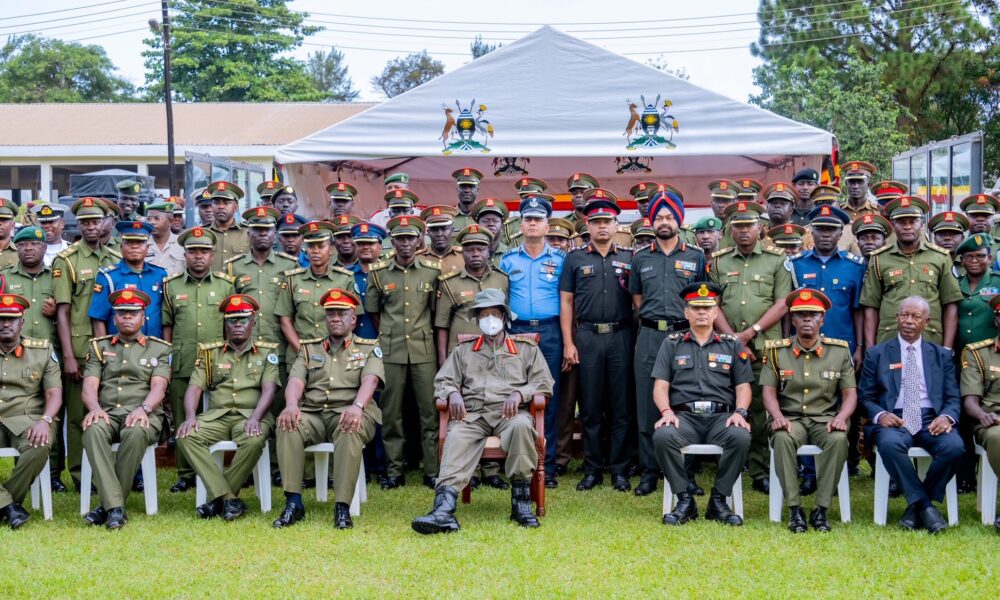By Our Reporter
President Yoweri Museveni has identified the under utilisation of Africa’s vast resources as the continent’s greatest impediment to economic progress, attributing it to ignorance, weak leadership, dependence on the West, low population density, and an ingrained “I don’t care” attitude.

Delivering a lecture of opportunity to 52 senior officers of Course 20/25 at the Senior Command and Staff College (SCSC) Kimaka in Jinja City, President Museveni, who also serves as Commander-in-Chief of the Uganda Peoples’ Defence Forces (UPDF), criticised the widespread failure to harness available resources for productive use. “Africa has a lot of resources, but people are reluctant to utilise them because of ignorance and I don’t care syndrome,” said the President. “In Africa, one can even survive without working. This has caused a lack of innovation and has left the continent backwards.”
He decried the dominance of informal labour across the continent, where many work merely to survive rather than generate wealth. He encouraged citizens to pursue viable enterprises and commercial production as a way to enter money-based economies.
President Museveni emphasised that sustainable wealth creation depends on four sectors: commercialised agriculture, industrialisation, the services industry, and the advancement of information and communications technology (ICT). He highlighted these as essential areas for job creation, particularly for the youth.
He reaffirmed Uganda’s commitment to regional integration, citing the East African Community (EAC) as a strategic platform for fostering a Pan-African identity, widening markets, and generating employment through expanded trade.
Stressing the need for patriotic and strategic leadership, Museveni said governments must prioritise peace, infrastructure, education, healthcare, electricity, and other social services that empower citizens to engage in intensive, productive economic activity.
The President warned against politics rooted in identity and ethnicity, advocating instead for leadership based on shared national interests. Referencing Somalia’s prolonged instability, he attributed the persistence of Al-Shabaab insurgents to a lack of coherent strategy and ideological clarity.
“If the people of Somalia adopted the same approach we used alongside Tanzania to defeat Idi Amin, working without pay but with a clear cause and strategy; they could overcome Al-Shabaab,” he said.
President Museveni reflected on Uganda’s liberation struggle, stating that its success came not from material benefits, but from a focused vision and strategic direction.
Brigadier General Michael Kabango, Commandant of SCSC Kimaka, said the 52 officers attending the course were drawn from across the region. Uganda contributed 41 participants, with Tanzania, Kenya, Rwanda, Burundi, and South Sudan each contributing two, and Malawi one.
The course is scheduled to conclude with a formal graduation ceremony on 27 June 2025.






